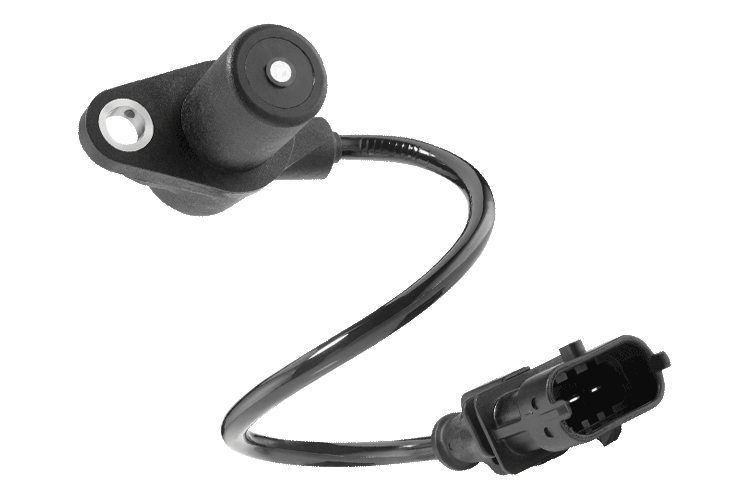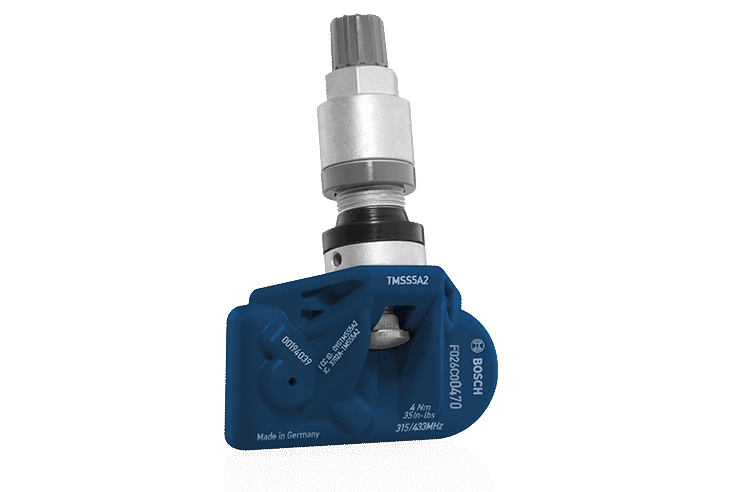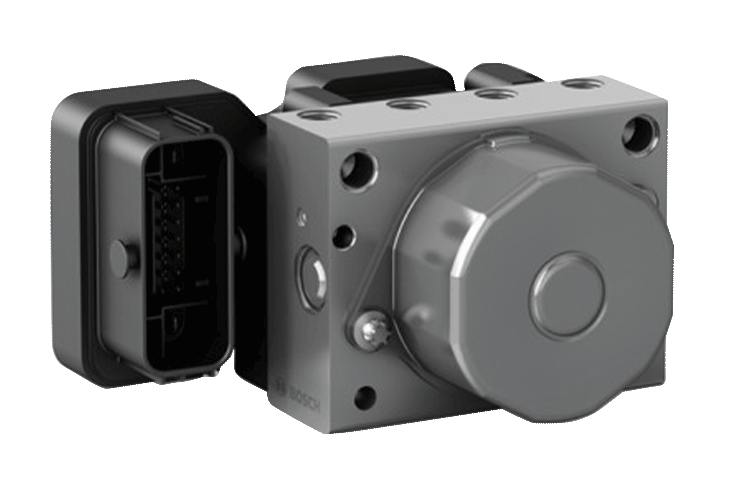Bap Vpf React Widget
Breadcrumb
Bap Product List Action Bar
BapProductSpecificationOptionFacets
Search Results
Tire and Chassis
Not only did Bosch invent the Electronic Stabilization Program (ESP) – the technology that improves a vehicle’s stability by detecting / reducing loss of traction – but it also was the first company to fit Anti-locking Braking Systems (ABS) into mass production. The ABS applies brake fluid that engages the brake calipers and pads, which slows a car without locking up the tires. The wheel speed sensor transmits the wheel speed to the ECU, which determines how much pressure the ABS can safely apply. Bosch is an original equipment global leader in wheel speed sensor technology. Bosch Wheel Speed Sensors (WSS) sensors ensure they deliver information on the wheels' rotation characteristics to the ABS/ESP control unit.
The new Bosch universal sensors for tire pressure monitoring systems (TPMS) measure the air pressure of the vehicle's tires in real time and transmit it directly to the control unit by radio. Universal, compact and easily programmable, BoschQUICK FIT sensors offer a vehicle coverage of over 90% with just two part numbers.
The Bosch electronic stability program (ESP) supports the driver in nearly all critical driving situations. It complements the functions of the anti-lock braking system (ABS) and the traction control system but can do considerably more. It detects vehicle skidding movements, and actively counteracts them. This considerably improves driving safety. The fundamental task of ESP is to prevent skidding. The possibilities offered by the ESP, however, go far beyond this. As ESP can build up braking pressure independently of the brake-pedal position, plenty of so-called value-added functions can be realized with ESP. These provide additional driving safety and allow the driver to experience enhanced driving comfort and driving agility.
Tire and Chassis
Wheel Speed Sensors
Not only did Bosch invent the Electronic Stabilization Program (ESP) – the technology that improves a vehicle’s stability by detecting / reducing loss of traction – but it also was the first company to fit Anti-locking Braking Systems (ABS) into mass production. The ABS applies brake fluid that engages the brake calipers and pads, which slows a car without locking up the tires. The wheel speed sensor transmits the wheel speed to the ECU, which determines how much pressure the ABS can safely apply. Bosch is an original equipment global leader in wheel speed sensor technology. Bosch Wheel Speed Sensors (WSS) sensors ensure they deliver information on the wheels' rotation characteristics to the ABS/ESP control unit.
Tire Pressure Monitor Sensors
The new Bosch universal sensors for tire pressure monitoring systems (TPMS) measure the air pressure of the vehicle's tires in real time and transmit it directly to the control unit by radio. Universal, compact and easily programmable, BoschQUICK FIT sensors offer a vehicle coverage of over 90% with just two part numbers.
Electronic Stability Program (ESP)
The Bosch electronic stability program (ESP) supports the driver in nearly all critical driving situations. It complements the functions of the anti-lock braking system (ABS) and the traction control system but can do considerably more. It detects vehicle skidding movements, and actively counteracts them. This considerably improves driving safety. The fundamental task of ESP is to prevent skidding. The possibilities offered by the ESP, however, go far beyond this. As ESP can build up braking pressure independently of the brake-pedal position, plenty of so-called value-added functions can be realized with ESP. These provide additional driving safety and allow the driver to experience enhanced driving comfort and driving agility.



